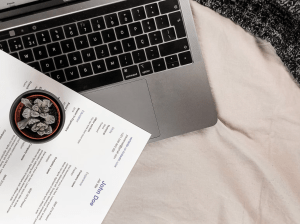Looking for your first job as a recent graduate can be daunting, particularly if you're new to crafting CVs. The graduate job market is competitive so it's important to have a high-quality resume that demonstrates your suitability for the role. Here are three important things to include if you're looking to start your first ever job.

1. Casual and weekend work
Many graduates don't have extensive work experience to put on their CV, but any previous work, including weekend jobs, casual work and temporary positions, are all useful. Even if the nature of past casual work doesn't seem relevant to the graduate roles you're applying for, it can still demonstrate a strong work ethic and ability to take on responsibilities.
Plus, your past casual work has no doubt helped you develop key skills that are appealing to employers. For example, working as a server at a restaurant supports the development of strong communication skills which are important in a wide range of jobs and industries, including business leadership roles. Doing casual yard work in your local community, such as mowing lawns and raking leaves, demonstrates an entrepreneurial spirit and ability to build connections with others which can be useful in many client-facing roles.

2. Key skills
Job descriptions tend to centre around key skills necessary for the role, so it's important that your CV reflects these skills to show that you're the right candidate. Include a bulleted list of skills that are most relevant to the job. It's a good idea to tailor your CV for every job you apply for. This allows you to move the most relevant skills to the top of the list or tweak phrasing to match that used in the job description. If you're writing a speculative CV or creating a generic CV to serve as a template for future applications, include core skills and attributes that most employees look for, such as communication and interpersonal skills, commercial awareness, teamwork skills, adaptability and resilience, problem-solving skills and time management skills.

3. Hobbies and interests
When you have limited work experience to include on your CV, you can demonstrate relevant personal qualities by including a section on your hobbies and interests. Make sure the things you mention are relevant to the jobs you're applying for or have helped you develop key skills. For example, if you're an arts graduate applying for jobs in a gallery, you could mention that you're a keen artist and briefly discuss the mediums you work in. If you're looking for jobs in administration, you might mention that you help organise training sessions and games for the amateur basketball team you play with.
There are plenty of hobbies that are suitable for inclusion on your CV, but make sure to be honest and truthful because you may be asked about them at the interview.
Your CV often provides hiring managers with their very first impression of you, so take your time in compiling this important document to ensure you really sell yourself and your unique skillset.


Add a comment to: Things graduates should include on their CV if they’re starting their first job